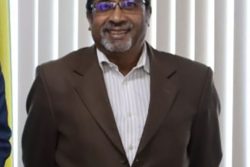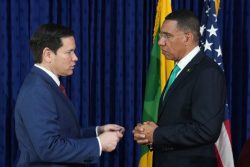DANDONG, China/OTTAWA, (Reuters) – Canadian Prime Minister Justin Trudeau yesterday criticized China for blocking access to the trial of Michael Spavor, a Canadian detained by Beijing since late 2018 on spying charges, a case that is part of a wider diplomatic spat between Washington and Beijing.
Spavor and his lawyer appeared at a hearing yesterday and the court will later set a date to issue a verdict, the Dandong Intermediate People’s Court said in a statement on its website.
China arrested Spavor and fellow Canadian Michael Kovrig in December 2018, soon after Canadian police detained Meng Wanzhou, the chief financial officer of Chinese tech company Huawei Technologies, on a U.S. warrant.
Canadian and other diplomats were not allowed to attend the trial on what China said were national security grounds, according to a Canadian envoy. Chinese courts have a conviction rate of over 99%. Kovrig, a former diplomat, is due to go on trial on Monday in Beijing.
“It is disappointing that the trial Michael Spavor went through – and possibly the trial Michael Kovrig will go through on Monday – is happening in secret without transparency, without access by Canadian consular officials,” Trudeau told reporters. The lack of transparency was “completely unacceptable,” he said.
“Our top priority remains securing their release,” Trudeau added at an Ottawa news conference.
Spavor, a 45-year-old Canadian businessman, was not seen outside the court and there was no word on his condition.
Beijing insists the detentions are not linked to the arrest of Meng, who remains under house arrest in Vancouver as she fights extradition to the United States.
Police set up a cordon on Friday morning outside the court, which sits along the Yalu River opposite North Korea, the isolated country that Spavor regularly visited in his business career.
Officials from the Canadian embassy and other nations including United States, Netherlands, United Kingdom, France, Denmark, Australia, Sweden and Germany were present outside the court as they sought access to the hearing. They were not allowed to enter.
Jim Nickel, charge d’affaires at the Canadian embassy in China who spoke outside the Dandong courthouse, said Canadian officials last saw Spavor on Feb. 3 and had made multiple requests to see him ahead of the trial, but those requests were denied.
“The reason that has been given is it’s a so-called national security case and their belief is that the domestic law overrides international law, which in fact is not the case. China does have international obligations to allow consular access,” Nickel said.
Chinese foreign ministry spokesman Zhao Lijian said cases involving state secrets are not open to the public.
Observers have said the likely convictions of the two men could ultimately facilitate a diplomatic agreement whereby they are released and sent back to Canada.
The trial dates were announced by Canada just as the United States and China were preparing for high-level in-person talks in Alaska, the first since U.S. President Joe Biden took office, which proved on Thursday to be contentious.
While China on Thursday denied a link to those talks, Trudeau said he was “very confident” that the United States would raise the detention of the two Canadians at the summit, which wraps up on Friday https://www.reuters.com/article/idUSKBN2BB216.
“Ultimately, the United States has to be willing to impose a serious price on China for their continued detention of the two Michaels, or they might not be released,” said Roland Paris, Trudeau’s former foreign policy adviser and professor of international affairs at University of Ottawa.
In a statement, Spavor’s family called for the unconditional release of both men.
“He loved living and working in China and would never have done anything to offend the interests of China or the Chinese people,” the statement said, adding that he was trying to build constructive ties between Canada, China and North Korea.








